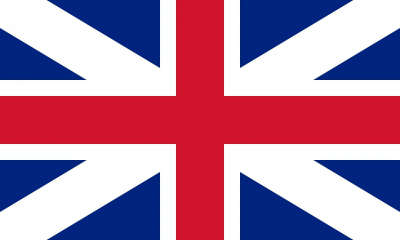The Gaspee Affair was a significant event in the lead-up to the American Revolution. HMS Gaspee was a British customs schooner that enforced the Navigation Acts in and around Newport, Rhode Island, in 1772. It ran aground in shallow water while chasing the packet ship Hannah on June 9 near Gaspee Point in Warwick, Rhode Island. A group of men led by Abraham Whipple and John Brown attacked, boarded, and torched the ship.The event increased tensions between the American colonists and British officials, following the Boston Massacre in 1770. British officials in Rhode Island wanted to increase their control over tradelegitimate trade as well as smugglingin order to increase their revenue from the small colony. But Rhode Islanders increasingly protested the Stamp Act, the Townshend Acts, and other British impositions that had clashed with the colony's history of rum manufacturing, slave trading, and other maritime exploits.
This event and others in Narragansett Bay marked the first acts of violent uprising against the British crown's authority in America, preceding the Boston Tea Party by more than a year and moving the Thirteen Colonies as a whole toward the war for independence.
The Kingdom of Great Britain, officially called Great Britain, was a sovereign country in Western Europe from 1 May 1707 to 31 December 1800. The state was created by the 1706 Treaty of Union and ratified by the Acts of Union 1707, which united the kingdoms of England (which included Wales) and Scotland to form a single kingdom encompassing the whole island of Great Britain and its outlying islands, with the exception of the Isle of Man and the Channel Islands. The unitary state was governed by a single parliament at the Palace of Westminster, but distinct legal systems – English law and Scots law – remained in use.
The formerly separate kingdoms had been in personal union since the 1603 "Union of the Crowns" when James VI of Scotland became King of England and King of Ireland. Since James's reign, who had been the first to refer to himself as "king of Great Britain", a political union between the two mainland British kingdoms had been repeatedly attempted and aborted by both the Parliament of England and the Parliament of Scotland. Queen Anne (r. 1702–1714) did not produce a clear Protestant heir and endangered the line of succession, with the laws of succession differing in the two kingdoms and threatening a return to the throne of Scotland of the Roman Catholic House of Stuart, exiled in the Glorious Revolution of 1688.
The resulting kingdom was in legislative and personal union with the Kingdom of Ireland from its inception, but the Parliament of Great Britain resisted early attempts to incorporate Ireland in the political union. The early years of the newly united kingdom were marked by Jacobite risings, particularly the Jacobite rising of 1715. The relative incapacity or ineptitude of the Hanoverian kings resulted in a growth in the powers of Parliament and a new role, that of "prime minister", emerged in the heyday of Robert Walpole. The "South Sea Bubble" economic crisis was brought on by the failure of the South Sea Company, an early joint-stock company. The campaigns of Jacobitism ended in defeat for the Stuarts' cause in 1746.
The Hanoverian line of monarchs gave their names to the Georgian era and the term "Georgian" is typically used in the contexts of social and political history for Georgian architecture. The term "Augustan literature" is often used for Augustan drama, Augustan poetry and Augustan prose in the period 1700–1740s. The term "Augustan" refers to the acknowledgement of the influence of classical Latin from the ancient Roman Republic.Victory in the Seven Years' War led to the dominance of the British Empire, which was to become the foremost global power for over a century. Great Britain would dominate the Indian subcontinent through the trading and military expansion of the East India Company in colonial India. In wars against France, it gained control of both Upper and Lower Canada, and until suffering defeat in the American War of Independence, it also had dominion over the Thirteen Colonies. From 1787, Britain began the colonisation of New South Wales with the departure of the First Fleet in the process of penal transportation to Australia. Britain was a leading belligerent in the French Revolutionary Wars.
Great Britain was merged into the United Kingdom of Great Britain and Ireland on 1 January 1801, with the Acts of Union 1800, enacted by Great Britain and Ireland, under George III, to merge with it the Kingdom of Ireland.

1772Jun, 9
The British schooner Gaspee is burned in Narragansett Bay, Rhode Island.
Choose Another Date
Events on 1772
- 9Jun
Gaspee Affair
The British schooner Gaspee is burned in Narragansett Bay, Rhode Island. - 21Aug
Swedish Constitution of 1772
King Gustav III completes his coup d'état by adopting a new Constitution, ending half a century of parliamentary rule in Sweden and installing himself as an enlightened despot.

 English
English  español
español  français
français  português
português  русский
русский  العربية
العربية  简体中文
简体中文 